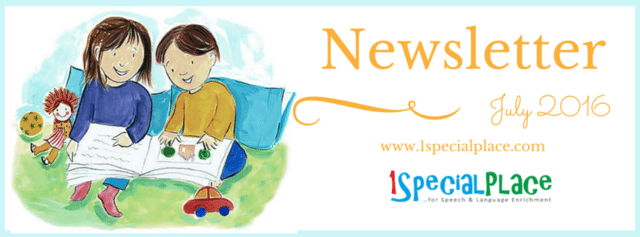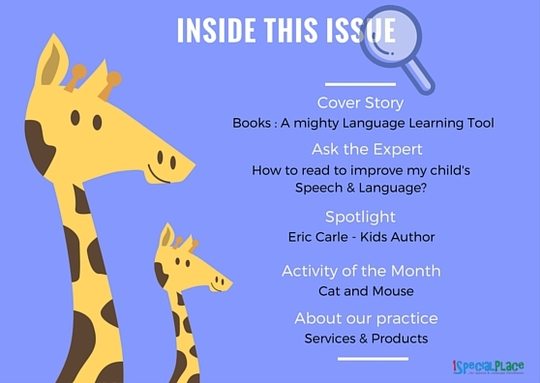COVER STORY
BOOKS : A Mighty Language Learning Tool
Research shows that reading to a child fosters development of speech and language skills in various ways. Here are the 7 rainbow pointers –
Reading builds Vocabulary
- Books expose children to many unfamiliar words.
- There are many words which are repeated in different sentences and contexts.
- Children get to hear different words over and over again with repeated readings.
Books spark children’s interests
- Books have colourful and bold illustrations.
- Some books have imaginary characters like princesses and dragons that encourage conversations between parents and children.
- Its simple for kids to show what they like in a book.
- Kids get opportunities to point gesture and draw attention to a picture in the book.
. Reading Improves Joint Attention and Interaction
- Books promote a parent’s responsiveness.
- Your response to your child while reading a book helps him use a variety of ways to express and communicate.
- Its easy to jointly pay attention during reading a book which is a key skill in developing communication and interaction.
- You tend to notice more what your child is looking at and/or talking about.
Reading Improves Cognitive Skills
- Books improve attention & concentration and other cognitive skills like reasoning and categorisation.
- As books offer a calm visual activity, children tend to sit longer and attend better ( Although it depends on how interesting you make the book reading session)
Reading builds understanding of meaning of words
- Books offer a platform for kids to learn what different words mean.
- By providing a brief explanation of what you read to your child, you expand his chances to learn new words in a meaningful way.
Reading helps in learning correct grammar
- Reading books helps your child pick up the grammar in a language.
- As opposed to the simple baby talk that parents tend to do with their kids ( ‘Sia want water?’), books expose children to the correct grammatical rules ( ‘Sia, do you want water?’)
Reading promotes Social Language Development
- Reading to your child promotes his social language development.
- By gauging how the characters in a book interact with each other, children develop a social language framework. This framework allows kids to develop appropriate social language skills as they communicate more with their peers
Complete Newsletter – July 2016
ASK THE AUTHOR!
M.Sc. (London)
Speech Language Pathologist
Audiologist
Pratiksha has been working with children since 2002. She has a vast experience of working in a variety of therapeutic settings with children with an array of needs such as Autism Spectrum Disorder, Attention Deficit Hyperactive Disorder ( ADHD), Attention Deficit Disorder ( ADD), Pervasive Developmental Disorder- NOS ( PDD – NOS), Cerebral Palsy, Hearing Loss, Specific Language Impairment, Mental Retardation, Learning Disability, Dyslexia, Language delay/disorder, Apraxia of speech, Stammering, Alternative Augmentative Communication( AAC) and Voice problems.



